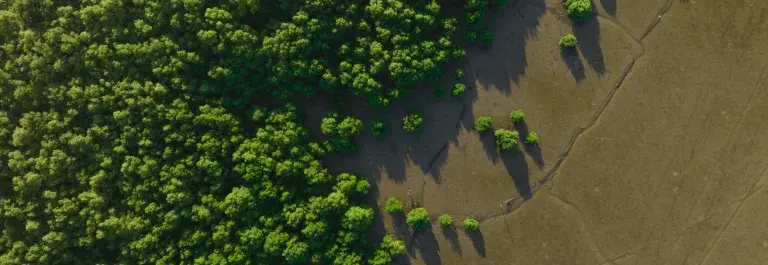Climate and nature
Trustworthy and ambitious sustainability systems are an important part of the climate solution and of efforts to preserve and protect biodiversity. They are increasingly offering new tools and applying innovative approaches to support businesses, governments and civil society with credible action on climate and nature. ISEAL supports innovation in this area.
Through the Innovations Fund – with support from the Swiss and UK governments-- , ISEAL supports sustainability systems to collaborate with business, NGO, and government partners on new approaches to driving effective action and reporting on climate and nature.
ISEAL Community Members are building tools to monitor and verify greenhouse gas emissions and biodiversity loss, testing new approaches to capacity building on climate-smart agriculture, and creating new models for incentivising investments in emissions reduction and the preservation of ecosystem services.
ISEAL encourages cross-collaboration and joint learning from these initiatives by convening groups working on the shared challenges. The ISEAL Climate Cohort, launched in 2024, offers a platform for sharing experience and solving collective challenges. Current priorities include:
- ensuring that sustainability systems are collecting and reporting GHG emissions data and that this data can be used and recognized by accounting, reporting, and disclosure frameworks, and
- developing mechanisms to translate this service into greater value and investment for upstream actors.
ISEAL supports coordinated engagement on technical topics (e.g. traceability and claims) between commodity and production standards and the broader eco-system of organisations shaping corporate action on climate and nature. For example, in 2024-2025, ISEAL launched a revision of its chain of custody guidance; the advisory group for this effort included organisations looking to use ISEAL’s guidance to bring more clarity in how chain of custody models are defined and used in climate accounting and target-setting frameworks.
Credible measurement is a common theme in ISEAL’s work on climate and nature. We would like to see sustainability systems delivering measurable emissions reductions and improvements in the conservation of nature and biodiversity. Sustainability systems need credible data to inform and improve their strategies and impacts over time. The same data can provide great value to other stakeholders if it can be effectively used for corporate accounting, reporting and disclosure.
With diverse strategies, bold ambitions and credible practices, the ISEAL community of sustainability systems are establishing themselves as trustworthy partners to support private and public sector climate action.
Some are revising their standards to put a greater emphasis on climate mitigation and adaptation or encourage climate smart agriculture.
Others are leading and supporting global and sectoral conversations about credible approaches to carbon credits, insetting, and scope 3 emissions reductions, or transition pathways in sectors such as biofuels, aluminium, and copper. And, many have committed to working with their partners to improve the environmental impact of their partners’ production processes. Some are helping their members set science-based targets for production that align with the Paris Agreement and publicly track progress of industries such as textiles and cotton production towards ambitious climate goals.
Many ISEAL Community Members have tools to help resource and production managers and project implementers measure emissions, show progress, and assess carbon stocks.
Others are supporting farmers to understand the impacts of climate change, identify adaptation measures, and to generate carbon credits and access climate finance.
Visit the ISEAL Innovations Fund page to learn more.







